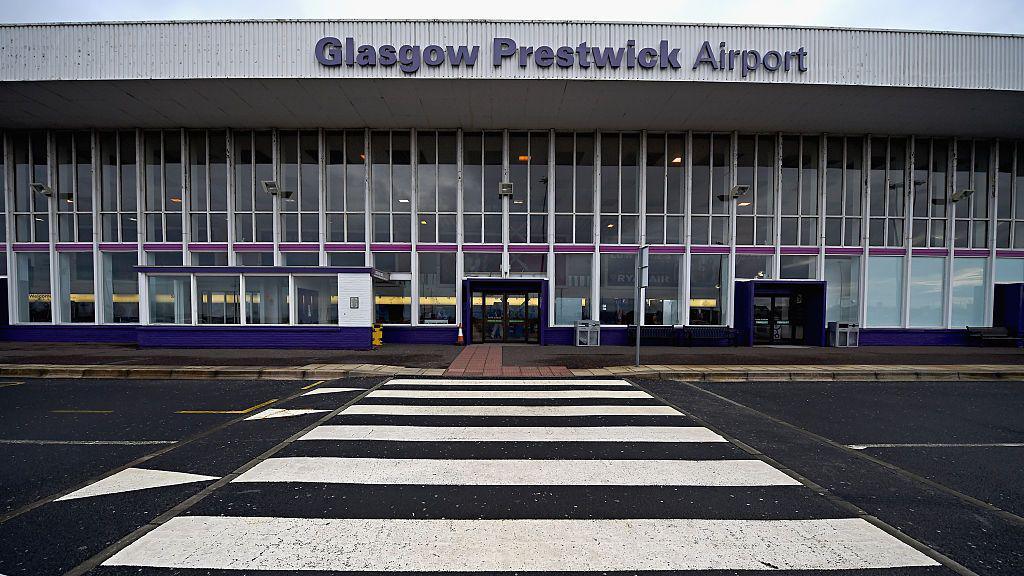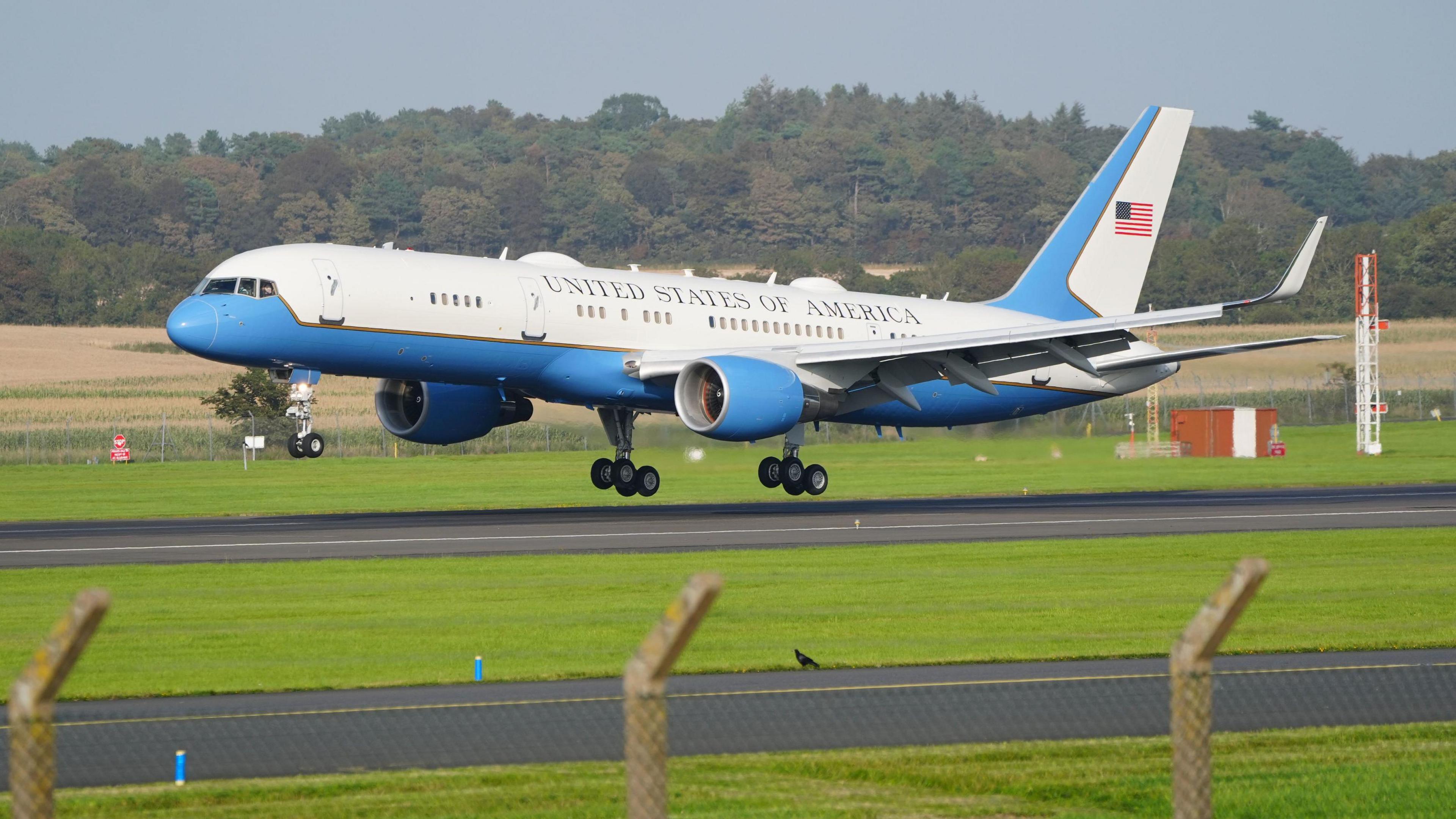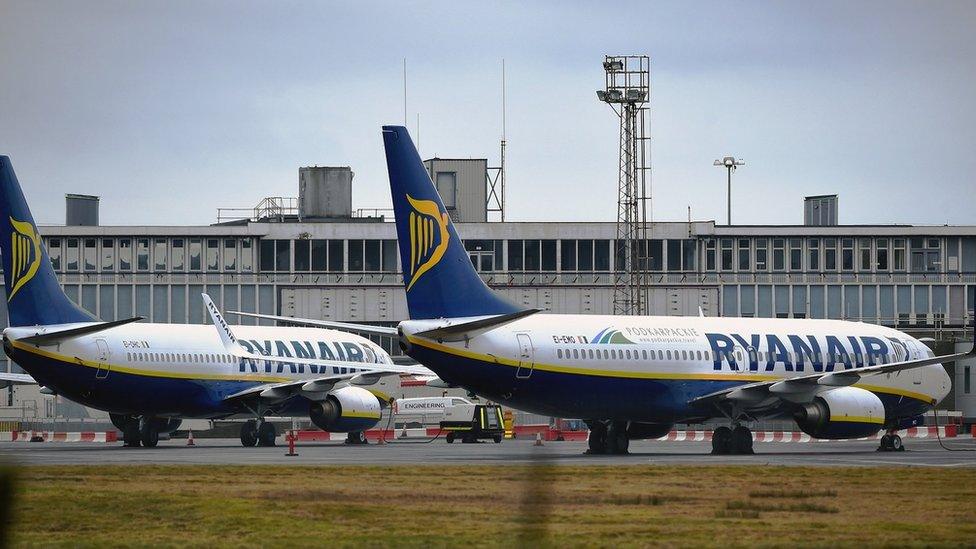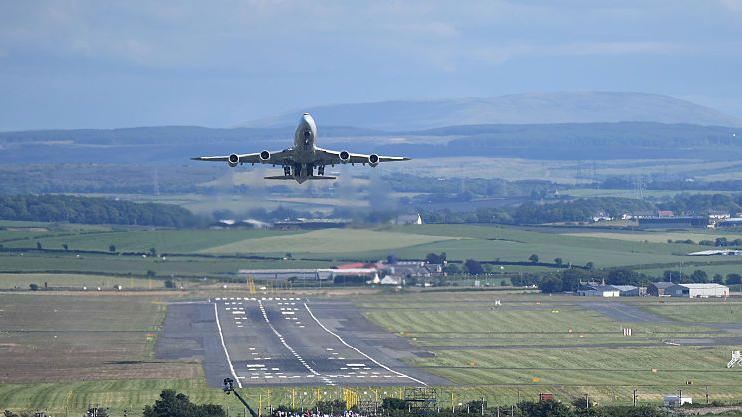Prestwick Airport remains in public hands as bidder pulls out

Prestwick Airport has been owned by the Scottish government since 2013
- Published
Prestwick Airport will remain in public ownership after the preferred bidder for its sale pulled out of the running.
A commercial deal had been negotiated between the Scottish government and the bidder - who remains anonymous - earlier this year.
However, Deputy First Minister Kate Forbes confirmed the possible takeover had fallen through in a letter to Holyrood's economy and fair work committee.
The Scottish government has been trying to sell the airport for several years, having taken it over from New Zealand infrastructure firm Infratil in 2013.
Forbes said she was disappointed about the sale falling through, but that commercial performance of Prestwick was increasingly strong, thanks to capturing a portion of the Chinese freight market.
She added that the preferred bidder had a strong track record within the aviation industry and had presented exciting plans for the airport.
Her letter stated: "We entered exclusivity with a bidder who we believed offered the best opportunity of achieving our stated objectives of maintaining Glasgow Prestwick Airport as an operational airport, maximising the return to Scottish ministers and ensuring that the airport continued as a driver of economic growth in Ayrshire."
The letter said a "robust commercial deal" had been agreed, but the bidder had since decided to withdraw from the process.

Air Force Two used Prestwick earlier this year
The airport was brought into public ownership in 2013 for £1, with the intent for it to return to the private sector when it returned to profit.
A previous deal to sell the airport in 2020 fell through, while other preferred bidders in the past later pulled out of negotiations.
The airport currently employs more than 500 people but budget airline Ryanair is the only main commercial airline that uses it. The majority of flights come from cargo services and trans-Atlantic military flights using Prestwick for stopovers.
Earlier this year both Air Force One and Air Force Two used Prestwick to land during visits to Scotland from President Donald Trump and Vice President JD Vance.
In her letter, Forbes added: "I am advised that the commercial performance of the airport is increasingly strong and that its half-year trading position will show that it has already achieved the targets set for the whole financial year.
"The leadership team has worked hard this year to capture a portion of the emerging Chinese freight market, and the workforce has established an excellent reputation for service quality in a competitive international market."

Although it's a choice piece of Ayrshire real estate, it's hard to find a buyer for Prestwick Airport. The reason could be the strings attached to it.
The Scottish government wants it retained as an airport. And the potential deal that has now fallen apart had to be referred for national security clearance.
Prestwick is a sensitive and strategic asset, with certification for high security flights. With a very long runway, rarely affected by fog and on the edge of the Atlantic, it's used by the air forces of a number of Britain's allies.
We don't know if that consideration kiboshed the deal, but Kate Forbes's letter left that possibility hanging in the air.
Prestwick's passenger facilities used to be sustained by its monopoly on Scottish links across the Atlantic, which ended in 1990.
Later, Prestwick was cheap for new budget airlines to use. And, unlike Edinburgh or Glasgow, it has a rail link.
But as Edinburgh and Glasgow airports became more competitive with one other as well as Prestwick, Ayrshire's airfield lost out.
It's gone back into profit through a focus on freight and aviation support. Ryanair has a maintenance hub there.
From the 1930s to the late 1990s companies such as Scottish Aviation Ltd and Lockheed manufactured aircraft and parts at the site and there are plans to revive that industry there with the next generation of training aircraft used by the RAF and Red Arrows.
Airbus is to put down its roots nearby, as the Spirit Aerosystems plant returns to Boeing ownership and those high-tech jobs continue to provide for both manufacturing giants.
Scottish ministers could opt to keep it in public ownership, just as many other airports in the Highlands and Islands, England and across Europe are owned by various layers of government.
But it could require a lot of investment in the runway and the passenger terminal. And there's a problem for the Scottish government if they're seen to be using limited capital funds to compete with privately-owned Glasgow and Edinburgh airports.
Related topics
- Published6 December 2023

- Published21 November 2023
